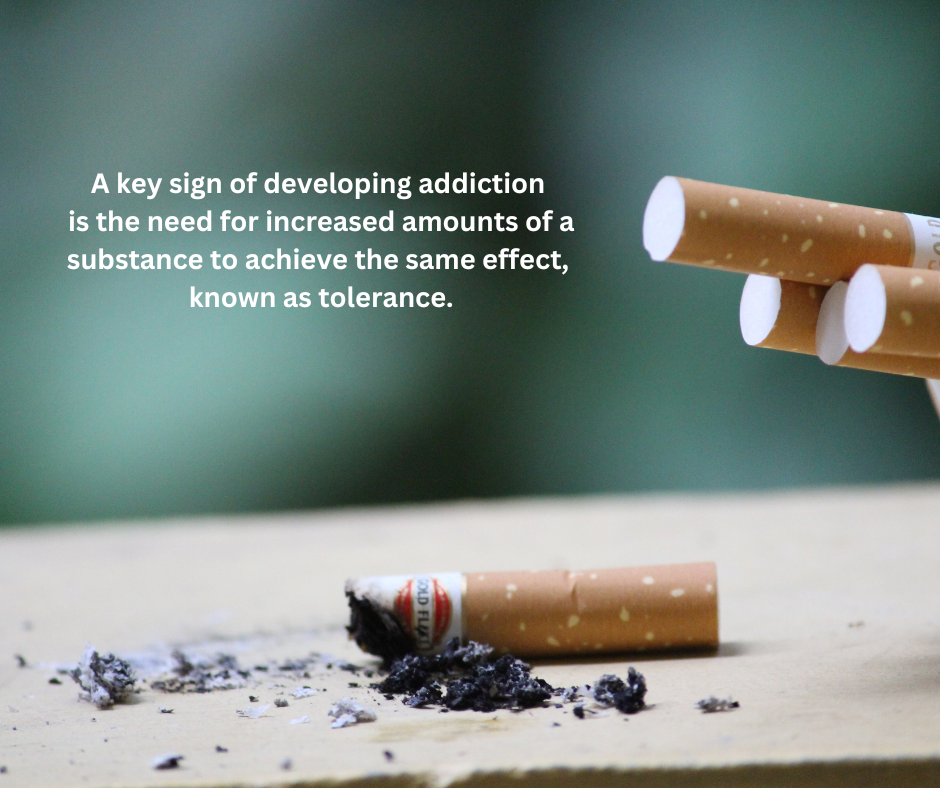
Recognizing and addressing early signs of addiction is crucial for preventing the development of severe substance use disorders and other addictive behaviors. Early intervention can significantly improve the chances of successful recovery and reduce the long-term impact on an individual’s health, relationships, and overall well-being.
Identifying Early Signs of Addiction
Behavioral Changes
One of the first indicators of potential addiction is a noticeable change in behavior. This might include a sudden loss of interest in activities that were once enjoyable, neglect of responsibilities, or increased secrecy. Individuals may start to isolate themselves from friends and family, preferring to spend time alone or with a new group of friends who share similar addictive behaviors.
Physical Symptoms
Physical signs can also be an early warning of addiction. These might include changes in appearance, such as significant weight loss or gain, poor hygiene, and unusual sleep patterns. Additionally, individuals may exhibit symptoms such as bloodshot eyes, frequent nosebleeds, or tremors, depending on the substance involved.
Emotional and Psychological Signs
Emotionally and psychologically, a person struggling with the early stages of addiction may experience mood swings, increased irritability, anxiety, or depression. They might also display a heightened sensitivity to stress and a decreased ability to cope with everyday problems.
Increased Tolerance and Usage
A key sign of developing addiction is the need for increased amounts of a substance to achieve the same effect, known as tolerance. Individuals may also begin to use substances more frequently and in larger quantities, often justifying their behavior or making excuses for their increased consumption.
Addressing Early Signs of Addiction
Open Communication
The first step in addressing early signs of addiction is open and honest communication. Approach the individual with empathy and without judgment, expressing concern for their well-being. It’s important to create a safe and supportive environment where they feel comfortable discussing their struggles.
Seeking Professional Help
Encouraging the individual to seek professional help is critical. Early intervention from healthcare professionals, such as therapists, counselors, or addiction specialists, can provide the necessary support and resources. These professionals can conduct assessments to determine the extent of the problem and develop an appropriate treatment plan.
Support Networks
Building a strong support network is vital for someone showing early signs of addiction. This can include family, friends, support groups, and community resources. Support networks provide emotional support, accountability, and practical assistance, helping the individual feel less isolated and more motivated to make positive changes.
Education and Awareness
Educating both the individual and their loved ones about addiction can help in understanding the nature of the problem and the importance of early intervention. Awareness programs can provide valuable information on the risks of addiction, coping strategies, and available resources.
Developing Healthy Habits
Encouraging the adoption of healthy habits can also be beneficial. This might include engaging in regular physical activity, maintaining a balanced diet, pursuing hobbies, and practicing stress-relief techniques such as meditation or mindfulness. Developing a healthy routine can help individuals replace addictive behaviors with positive activities.
Recognizing and addressing the early signs of addiction is a critical step in preventing the progression of substance use disorders. By being vigilant about behavioral, physical, and emotional changes, and by fostering open communication, seeking professional help, building support networks, and promoting healthy habits, we can effectively intervene and support individuals on their path to recovery. Early intervention not only improves the chances of successful recovery but also enhances the overall quality of life for those affected by addiction.
4o